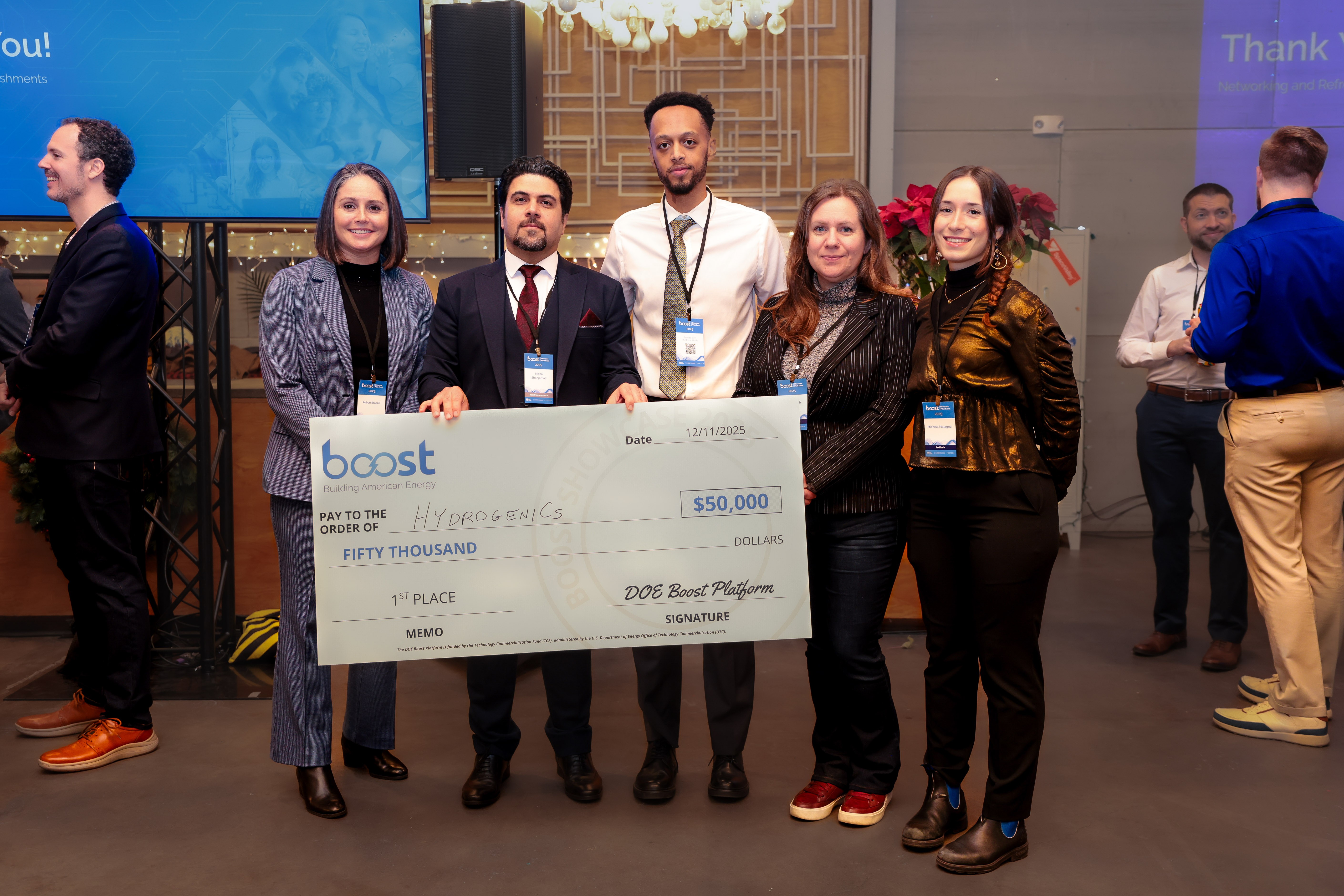FedTech 10: 5 University Lab Spinouts: From University Research to National Impact
Over the past decade, FedTech has catalyzed the transition of university research into scalable deep-tech ventures, targeting urgent challenges across energy, health, infrastructure, and security.
These spinouts reflect how strategic support, commercialization pathways, and ecosystem partnerships enable lab breakthroughs to become national differentiators in the next decade of U.S. innovation.
Worcester Polytechnic Institute
Iron Anode Battery
Respire Energy is developing a non-flammable metal-air battery designed for long-duration energy storage with both fast ramping and multi-day discharge capability. Their goal is to bridge gaps in renewable supply and maintain operation of critical infrastructure, microgrids, and facility backup systems.
By eliminating flammable electrolytes and focusing on stability and safety, Respire is tackling one of the hardest problems in the energy transition: how to store power reliably, efficiently, and safely over extended periods.
Learn more about Worcester Polytechnic Institute
UMass Dartmouth
Systems and Methods for Wave Energy Conversion
Mira Intel offers drone + AI structural intelligence, using multispectral, thermal, and 3D imaging combined with computer vision to detect early signs of degradation: corrosion, cracks, misalignment, and material fatigue across bridges, ports, levees, and grid infrastructure.
Its output transforms raw aerial data into actionable asset models, degradation scores, and prioritization maps, enabling predictive maintenance, rapid post-disaster assessments, and infrastructure resilience at scale.
Learn more about UMass Dartmouth
University of Maryland
Camera-Enabled Biometric Sensing
ProsightAI is advancing camera-based biometric sensing that non-invasively tracks vital signs like heart rate and respiration through conventional imaging systems. Its algorithms analyze micro-movements and subtle color variations to produce continuous physiological metrics; no wearables, electrodes, or contact sensors required.
Originating in university research on computer vision and physiological signal processing, ProsightAI’s platform is applicable in telehealth, hospital monitoring, elder care, wellness, and population screening.
Learn more about University of Maryland
California State University, San Bernardino
Selective Lithium Ion Extraction
Carmine Minerals is developing selective extraction technology to recover high-purity lithium from battery waste streams without requiring heavy pretreatment. Their approach is intended to isolate lithium even in complex mixes, reducing energy consumption and processing steps compared to conventional recycling.
By closing the loop on critical mineral supply, Carmine supports a more sustainable, circular battery ecosystem that lessens dependence on mining and resource imports.
Learn more about California State University, San Bernardino
Old Dominion University
Cyber Risk Scoring and Mitigation (CRISM)
Charisma Cyber commercializes the CRISM analytics engine, developed in academic settings (via CIRI), which models attacker paths, interdependencies, and threat propagation across IT/OT environments.
Its output produces vulnerability prioritization, risk scoring, and mitigation roadmaps tailored for complex networks. Selected by the DHS Homeland Security Startup Studio, Charisma Cyber positions government and infrastructure operators to act on sophisticated threat insights.
Learn more about Old Dominion University
Each of these ventures started as a university research project and matured into a scalable company through structured pathways and commercialization support.
Together, they illustrate how FedTech’s lab-to-market model amplifies U.S. innovation; advancing technologies that reinforce energy security, cyber resilience, health outcomes, and infrastructure integrity, all while laying the foundation for the next decade of American deeptech leadership.
Recent Posts
Link has been copied.





